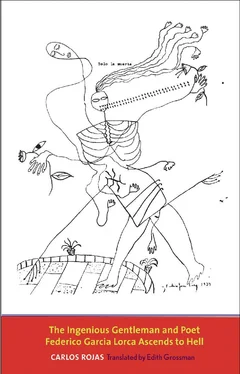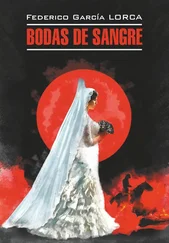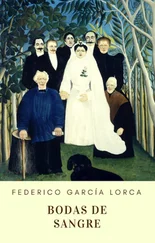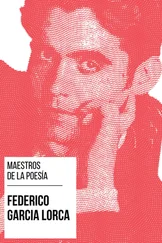Sandro Vasari, the man with the scar, shrugged and stood at the same time that he closed and picked up his notebook. He placed the pen in the breast pocket of his jacket and replied, not lowering his gaze to the old man’s eyes:
“No, Señor Ruiz Alonso, I never saw you in my dreams when that man’s memories were staged there. Not ever. If you lied to me, as I sincerely believe you did, because many testimonies contradict yours in almost every point, in dreams at least I couldn’t prove it.” He stopped suddenly as he was ready to walk away. “Excuse me, I did see you once and don’t know how I forgot it. In my nightmare, he evoked his departure from Madrid and return to Granada in the summer of his death. His memories appeared accurately in hell. He arrived at the station accompanied by a friend, who carried his suitcase to the sleeper car and left it in the luggage net. They went out to the passageway to say goodbye, and there his manner changed. Filled with anxiety, he pleaded with his friend to leave right away so he could go into his compartment and close the curtains. In the corridor, his back half-turned and looking out the window at the platform, was a deputy for Granada with whom he didn’t want to speak. That traveler, younger by almost half a century, was you. Secretly, so you wouldn’t see or hear him, he told his friend your name: Ramón Ruiz Alonso.”
Ramón Ruiz Alonso, expressionless and unblinking, contemplated the cups in their saucers. As it cooled the coffee turned gray and looked as if tiny spiders had climbed up from the dregs to weave their webs on the surface. He took a spoon and put it down again on the glass tabletop, making a clinking sound. Then he passed his gaze over his open palms, along the labyrinth of creases that seemed marked with the tip of a knife.
“It’s very true, but also very strange,” he said at last, shaking his head. “I don’t know how you could know all that if your dreams didn’t illuminate the past. Yes, that friend of his recounted the story afterward, and today his biographies say we met on the Andalucía express. This is the reality, and I never affirmed or denied it. I couldn’t prove or disprove it, because I assumed I never saw him that afternoon. Even so … ”
“Even so … ”
In the café, which suddenly had begun to empty out, Sandro Vasari and Ramón Ruiz Alonso formed an unusual picture. The hunched old man, his hands still open, forehead, brows, and eyes reflected in the glass of the table; beside him stood the man with the scar, his energy and circumspection reborn, though not without an obvious note of astonishment when he was already preparing to leave. Together they resembled models for one of those biscuit-shaped pantheons from the period when our parents took us to Madrid for the first time and the French impressionists were on view at the Retiro. Pantheons signed by Mariano Benlliure or one of his outstanding students, in which a patrician old man, carved in alabaster statuary beside a marble table, like Blasco Ibáñez’s, showed his empty hands to the exterminating angel.
“I did see him and see him again now just as I did then. As you say you witnessed the apparition in your memories, in your dream. A man was with him, almost as young as he was, who resembled a sheep. He must have had his head shaved a little while before and a curly fuzz was beginning to darken his skull.” Ruiz Alonso continued, not looking up from his open hands, his words growing quieter and more spaced apart. “I noticed how he avoided me, obliging me to keep leaning out the window in the passageway, pretending to look at some rustics right out of a zarzuela like The Festival of La Paloma. I don’t know if you understand me because people like that are rare now in Madrid. Women in long polka-dotted skirts, shawls with long fringe around their shoulders, and kerchiefs on their heads, escorted by men in caps pulled to one side, tight trousers, and starched handkerchiefs around their necks, armed with willow branches like foils. I don’t know how much time I spent looking out the window, watching them run along the platform, sometimes to catch a train that wasn’t ready to leave yet, other times buying pink candied almonds, or simply showing themselves off as if the station were a theater, while I knew I was obliged to listen to their laughter, their remarks, their shrieks. That kind of sentence, imposed by the gentleman, may he rest in peace, seemed as endless to me as eternity itself.”
“What else happened?”
“Nothing else. The man who resembled a sheep left, and the poet, God rest his soul, said goodbye to him from the car steps. I watched, pretending not to see anything, so they in turn wouldn’t see me. After so many years, the whole scene must seem completely crazy to you. But I know very well what I felt … ”
“What did you feel, Señor Ruiz Alonso?”
“That gentleman went back to his compartment and closed the doors and curtains, as if I were carrying the plague,” said Ruiz Alonso, not listening to him. “Yes, exactly as if I were carrying the plague, or was a leper or monster. Look, he had no right to treat me that way. He didn’t, I assure you. I’m a poor typesetter, a workman, retired now, and proud of it. But back then I was also a deputy and author of a book about corporatism, with a prologue by Señor Gil Robles. Above all and more than anything else, I was an honest man, a Christian gentleman even though I was a worker, which doesn’t discredit my honor but increases it. Yes, sir, increases it! I had a name that now they want to stain with all kinds of lies, because these days and in this country there’s no honor and no shame. I moved through the world with my head high because my conscience was clear, and I knew that Almighty God, at whose feet I will soon lie prostrate, looked upon my face as He looks upon it today.”
“Did you also hold your head high when the governor asked you to arrest that man, Señor Ruiz Alonso?”
“The acting governor.”
“Fine, the acting governor.”
“Lieutenant Colonel Velasco. That was his name. I don’t know why I remember it now.”
“Did you hold your head high when Lieutenant Colonel Velasco asked you to arrest the poet?”
“Yes sir, I did, because an inevitable justice, divine justice, seemed to settle our debts! If he hadn’t avoided me on that train, I still would have taken him prisoner, but then there would have been no pride or satisfaction on my part, limiting myself strictly to fulfilling my duty. If I had known they were going to kill him in a few days, I would have been horrified, but I still would have arrested him because, as I told you before, in wartime orders are sacred. Command is hard and obedience can be even harder. If I insisted on carrying out my duty alone, it was to show him that I didn’t hide behind the curtains at the moment of truth. I, a humble typesetter, could take him to the Civilian Government building with my face as our only escort, because my presence was enough to keep anyone from assaulting him.” He paused, shaking his grieving head, only to raise it immediately and face Sandro Vasari. “Am I as reprehensible as they say — the Irishman, the Frenchman, and someone from Barcelona who’s from a very pious family so I don’t know how he turns up — when heaven decreed I could arrest him, knowing its will coincided with my satisfaction for the insult in the Andalucía train? Answer me from the bottom of your soul: Am I or am I not an honest man?”
PREPARE FOR YOUR TRIAL.
If man is the guilty conscience of the universe, the only consciousness that can detect its almost absolute dehumanization, then man, alive or dead, on earth or in hell, is perhaps the most complex of its constructions. Sandro Vasari (“Why do you insist, a Spaniard though your name sounds Italian, Señor Vasigli, on writing a book about that poor unfortunate instead of dedicating a Mass to his soul?”), I repeat, Sandro Vasari, born perhaps after other men killed me or a child when they did, dreamed about me in hell, awaiting trial. He saw both the seats and the stage, which one day will be assigned to him on the spiral, and this seems an even greater portent to me. Here and now, in the interminable wakefulness of my own death, and returned to my assigned theater, I perceive with dismay the close correspondence between dreams and eternity in the warp where life and death are interwoven and become identified. I would also affirm, though I can confess this certainty only to myself, that literature is the closest key to this labyrinth where the living and the dead are commingled.
Читать дальше












